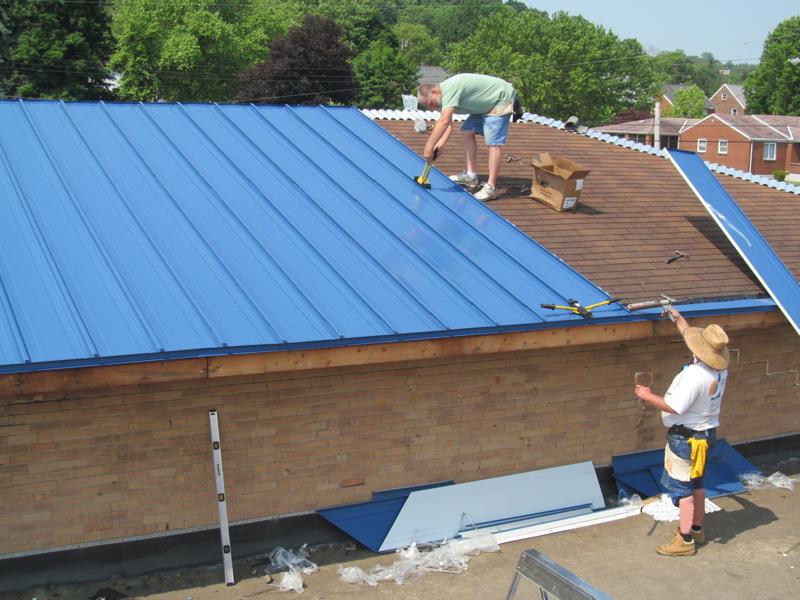Embarking on a roofing project prompts homeowners to explore innovative options. One intriguing query that often arises is, “Can a Metal Roof Be Installed Over Asphalt Shingles?” In this comprehensive guide, we’ll unravel the possibilities and shed light on the advantages and considerations of this roofing approach.

Considering the Upgrade: Can a Metal Roof Be Installed Over Asphalt Shingles?
Before diving into the intricacies, let’s address the fundamental question: Can a Metal Roof Be Installed Over Asphalt Shingles? The short answer is yes, but the process involves careful planning and adherence to specific guidelines. The decision to layer a metal roof over existing asphalt shingles can offer several benefits, making it an appealing choice for homeowners seeking durability and energy efficiency.
Exploring the Advantages: Can a Metal Roof Be Installed Over Asphalt Shingles?
- Cost Efficiency: Opting to install a metal roof over existing shingles can be a cost-effective solution. The elimination of the need for shingle removal reduces labor and disposal expenses, making the overall project more budget-friendly.
- Insulation Enhancement: The additional layer of metal provides an extra barrier, improving insulation. This can result in energy savings by regulating indoor temperatures more effectively, especially in extreme weather conditions.
- Time-Saving Installation: Installing a metal roof over asphalt shingles is generally quicker than a complete roof replacement. This can be advantageous, especially when time is a critical factor.
The Process Unveiled: Can a Metal Roof Be Installed Over Asphalt Shingles?
To successfully install a metal roof over asphalt shingles, meticulous planning and execution are essential. Here are key steps in the process:
- Assessment and Preparation: Evaluate the condition of the existing shingles. If they are in good shape with no structural issues, they can serve as a suitable base for the metal roof. Any damaged shingles should be replaced, and the roof should be thoroughly inspected for issues that might affect the new installation.
- Ventilation Considerations: Adequate ventilation is crucial for the longevity of any roofing system. Ensure that the attic space is well-ventilated to prevent moisture buildup, which could compromise the new metal roof.
- Installation of Strapping or Battens: To create an air gap between the metal and shingles, strapping or battens are installed over the existing roof. This ensures proper ventilation and prevents heat transfer, enhancing the performance of the metal roof.
Navigating the Process
While the process holds numerous advantages, it’s vital to understand that success hinges on meticulous planning and execution. Each step plays a crucial role in ensuring the longevity and efficiency of the new metal roofing system.
Considerations and Caveats: Can a Metal Roof Be Installed Over Asphalt Shingles?
- Weight Considerations: Metal roofing is generally lighter than traditional roofing materials. However, it’s crucial to assess whether the structure can support the additional weight of the metal roof.
- Local Building Codes: Before proceeding, check local building codes and regulations. Some areas may have specific requirements or restrictions regarding metal roofing installations.
- Manufacturer Guidelines: Adhering to the guidelines provided by the metal roofing manufacturer is paramount. This ensures that warranties remain valid and that the installation meets industry standards.
Conclusion: Elevating Your Roofing Experience
In conclusion, the question of “Can a Metal Roof Be Installed Over Asphalt Shingles?” opens doors to a cost-effective and efficient roofing solution. By understanding the advantages, considerations, and steps involved, homeowners can make informed decisions to enhance their homes. Whether driven by budget constraints, time considerations, or a commitment to sustainability, this innovative approach to roofing offers a viable option for those seeking a durable and energy-efficient solution.



Leave a Reply